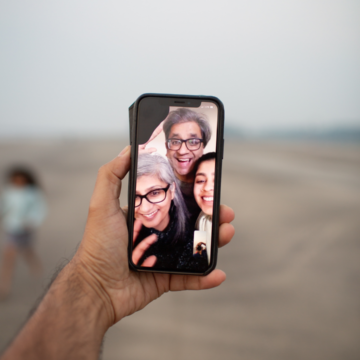We talk about food and alcohol a lot this time of year. There are ways to take a bit more balanced approach that can help us feel positive, in control and experience the holidays with awareness.
Avoid labeling foods as “good” or “bad”
At the end of the day, food is just food. Despite how many of us have been trained to think, they’re neither inherently good nor bad. If you’re focused on maintaining a healthier weight or managing a chronic condition like diabetes, then, yes, there are some foods that are going to help you reach your goals more than others.
The act of labeling foods as good or bad, clean or unclean, or a cheat meal, is ultimately harmful. By assigning these types of emotional values to specific items, it’s easier to experience stress, guilt or self-judgment when eating them. Over time, this creates negative associations with eating and how it impacts our bodies.
- Above all, follow any advice from your doctor or health professional on what foods you should avoid eating based on your personal situation.
- Resist the urge to tell yourself that you’ve failed or succeeded based on what you’ve eaten.
- Try to re-frame celebrations involving food and alcohol to be about your love and care for the people around you rather than the need to eat or drink in a certain way.
Release the need to comment on what you are eating
Food is a complex subject for a lot of people. Individual relationships with eating are unique and directly tied to our mental health and personal body images. At the same time, it’s common for us to feel a desire to “help” if we think someone we care about isn’t eating the way we feel is best for them. Unfortunately, well-intended comments can often lead to feelings of shame and embarrassment, neither of which help build a positive relationship with food.
Particularly at the holidays, when we’re surrounded by both temptations and people we care about, it’s important to let go of any need to talk about the way you’re eating or the pressure to defend or justify your own food choices.
Healthy Brain

Be careful of “saving calories”
It’s harder to be self-aware of how and why you’re eating when you’re hungry. Stopping your regular eating habits to prepare for a big meal or party later in the day puts you at risk of being hungrier and more stressed later on.
Instead of trying to save up calories, focus on:
- Eating at your normal meal times throughout the day.
- Snacks and smaller meals high in protein and fiber, both of which will help you feel full and satisfied.
- Getting in lots of water so you’re well-hydrated, especially if you’ll be drinking alcohol later.
Enjoy yourself and be present
Preparing too much in advance or framing holiday celebrations as a reward for good behavior can lead you to feel you only deserve them if you’ve acted or prepped in a certain way.
Instead, the key is to give yourself permission to fully enjoy it. If you’ve been looking forward to a meal or cocktail (or both) then, when the time comes, take a second to really be in the moment.
- Chew slowly and savor every bite and sip.
- Listen to your body’s natural signals telling you when you’ve had enough to eat.
- Feel gratitude for the experience and connect with the joy of celebrating.
Eating and drinking is part of the holiday season for a good reason — it brings us together and helps us show how much we care about each other. Try to focus not on food, but on taking the time for self-care or celebrating with family, friends and the people you love.






